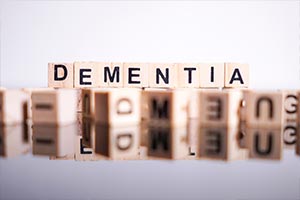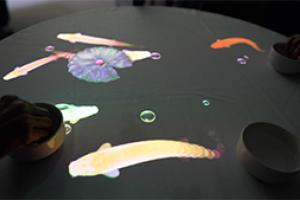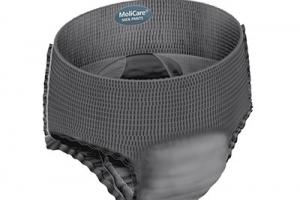With dementia cases predicted to triple to 150 million by 2050, it is imperative that funding for the dementia care system is increased. The…
Helping a loved one with dementia during lockdown
Recognising that people need educating about dementia care, especially during these unprecedented times, Stuart Wright, Brunelcare’s Dementia Lead, shares advice to help friends and family who may be caring for, or helping a vulnerable loved one living with dementia during lockdown.
Help empower the person
As people are encouraged to follow Government advice to ‘stay alert’ taken, it’s a good idea to help the person living with dementia feel in control, even if we are living in a time where ‘control’ is limited. Creating a calendar, almost like a to-do list, with all the things they do routinely, will enable them to remain independent and keep busy for longer. Plotting things on the calendar such as taking the bins out, hoovering, watering the garden, or putting the washing on etc, can give people living with dementia a sense of freedom during these difficult times.
Enable a positive state of mind
During this time it’s easy to feel bombarded by information telling us what we can’t do, it’s important for you, and your loved one, to adopt a positive state of mind.
Stuart says:
“Although it can be challenging, maintaining a positive state of mind at this time is important. Watching the news or using social media too frequently can contribute to feeling anxious, especially if a person is living with dementia or if you’re caring for someone with dementia. So try to do this in moderation and focus your energy on the things that are in your control. Try not to speculate about what the future holds and instead take time to share positive moments with your loved one, all while maintaining a social distance.”
Go outside if you can
If your loved one is able to go outside for gentle exercise, then encourage this, but only if it’s safe to do so. If they are able, encourage walking or sitting in the garden, getting out and about in nature has a calming effect and is really good for our wellbeing. Gardens are a great place to do gentle stretches or relax and gardening can be therapeutic, plus it can be a lovely pastime to enjoy together.
Get creative inside
If getting out is difficult, or you are shielding, do remember it’s ok to stay indoors and there’s still plenty you can do with your loved one.
Stuart says:
“Creating photo albums is a great indoor activity and will trigger happy memories for not just your loved one, but you as well. Another suggestion is hand massages - gentle hand massages with scented oils and creams can stimulate the senses and have a calming effect for your loved one. Another, the BBC’s reminiscence archive is a wonderful resource for people living with Dementia. Designed to trigger memories, simply select a theme or a decade of interest, the archive will then show images, videos or play audio around the subject. And finally, Singing for the Brain is now online, which means people who regularly take part don’t have to miss out and for people who are yet to try it, now could be just the time!”
Technology friend or foe?
Stuart says:
“At this time we have seen that technology can be our friend, allowing people with capacity to maintain a connection, whether this is talking to a loved one via a video call, sending and receiving text messages or daily phone calls. However, there is a thin line between technology being our friend and our foe during these uncertain times. Technology and lack of understanding and/or capacity could cause more distress and concern than it does good. Someone living with dementia, for example, could find it extremely difficult to understand why their loved one isn't visiting, or why their loved one is on a small screen in front of them. The majority of older people struggle to grasp new technology as it is, let alone living with dementia. Do consider if tech will cause more harm than good before implementing it.”
Helpful resources
If you need additional support at this time, here are some useful contacts.
Dementia UK helpline: 0800 888 6678 (Free advice and support for carers between 9am and 9pm, provided by Admiral Nurses).
Alzheimers Society support advice line: 0333 1503 456
Dementia Navigators, signposting to local services adapted service 01179045151
Stuart Wright has worked in the health and social care industry for more than 30 years, starting his journey working with people with learning disabilities and behavioural issues before specialising in dementia care. Stuart is currently implementing and developing a human rights framework and standard for people living with dementia.





